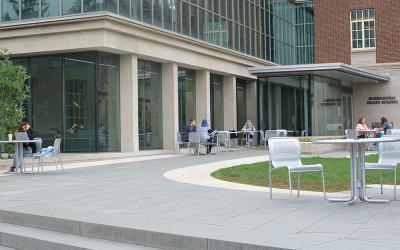-
About
ExploreUp a level (this gets replaced in JS)
-
Strategic Plan
Explore
-
College Overview
Explore
- Dean's Lecture Series
- Environmental Health Sciences
-
Diversity, Equity and Inclusion
Explore
-
Get Involved
Explore
-
People
Explore
-
Achievements
Explore
- Administrative Offices
- Discover HHD
- College News and Events
- Commencement
- Contact Us
-
Strategic Plan
-
Undergraduate
ExploreUp a level (this gets replaced in JS)
-
Getting Started
Explore
-
Student Support
Explore
-
Get Involved
Explore
-
Gain Experience
Explore
-
Careers
Explore
-
Get Connected
Explore
-
Policies and Procedures
Explore
- Summer Session
- Discover HHD
- Visit and Apply
- New Student Orientation Program (NSO)
- Undergraduate News
- Commencement
- Contact Us
-
Getting Started
-
Graduate
ExploreUp a level (this gets replaced in JS)
-
Getting Started
Explore
-
Student Support
Explore
-
Student Profiles
Explore
-
Get Involved
Explore
-
Get Connected
Explore
-
Gain Experience
Explore
- Environmental Health Sciences
-
Diversity, Equity and Inclusion
Explore
-
Commencement
Explore
- Discover HHD
- Admissions
- Contact
-
Getting Started
-
Online & Outreach
ExploreUp a level (this gets replaced in JS)
-
Online Degrees and Programs
Explore
-
Outreach Programs
Explore
-
Short-term Courses
Explore
-
Teaching Support
Explore
- Contact Us
-
Online Degrees and Programs
-
Research
ExploreUp a level (this gets replaced in JS)
-
COVID-19 Response
Explore
-
Researcher Resources
Explore
-
Ongoing Research
Explore
-
Research Units
Explore
-
Diversity, Equity and Inclusion
Explore
- Environmental Health Sciences
-
Get Involved
Explore
-
Stay Connected
Explore
- Discover HHD Research
- Research News and Events
- Contacts
-
COVID-19 Response
-
Alumni
ExploreUp a level (this gets replaced in JS)
-
Become a Member
Explore
-
Resources for Alumni
Explore
-
Building Diversity and Inclusion
Explore
-
Get Involved
Explore
-
Meet Our Volunteer Leaders
Explore
-
Stay Connected
Explore
-
Alumni Achievements
Explore
-
Parents and Family
Explore
-
Donate
Explore
- Alumni News
- Attend an Alumni Event
- Give to HHD
- Update Your Contact Information
- Contact Us
-
Become a Member
-
Contact
Explore
-
Departments
Explore
-
Research Centers
Explore
-
Central Administration
Explore
-
Training and Support
Explore
- Contacts/Directory
06-01 Computer Backup Procedure & Handling of Non-Essential Files
Policy # : 06-01
Effective: August 1, 2006
Revised: N/A
Section: Operations and Services
Subject: Computer Backup Procedure & Handling of Non-Essential Files
PURPOSE
To describe the backup process when a computer is serviced and the time period that user’s data is maintained.
To define what non-essential files are and how they are treated during an ISS service call.
POLICY APPLIES TO
All computers that are used by college faculty, staff, and students.
POLICY
All computers that are serviced by ISS for the purpose of reinstalling the operating system, replacing the hard drive or replacing the entire computer will have the existing hard drive(s) backed up to one of our backup stations. A copy of the contents of the existing hard drive(s), in a retrievable form, is saved by the backup station. These copies are kept on hard disk for up to 6 months.
Hard drive sizes and the amount of data stored on them have continually increased. Consequently the time required to back up and restore these files has also increased to the point where ISS can no longer be responsible for non-essential files.
Non-essential files are hereby defined as files which are of a personal or non-work related interest. Some examples of non-essential files are:
- Music files
- Family photos
- Family videos
These files can be very large. Even though these files are backed up as part of our standard imaging procedure, they will not be restored.
The restore procedure takes longer then the backup procedure since the technician must manually browse through the folders to select which files to restore. Restoring also takes longer since the files are restored across the network which is a slow process in itself; compounded by the presence of large non-essential files being included in the process. Many music files, even if transferred, will not be useable on the new drive due to Digital Rights Management (DRM) technology.
By excluding non-essential files from the restoration phase of a service call we can reduce the “bench time” required for the service call and increase the number of PCs that can be serviced in a given time period.
Consequently, users MUST backup their own non-essential files before their PC is sent to ISS for service.

Information Systems and Services (ISS)
16 BBH Building
University Park, PA 16802
Helpdesk
iss-helpdesk@psu.edu
814-865-INFO (4636)
Hours
Monday-Friday by Appointment Only
8 a.m. - 4:30 p.m.
